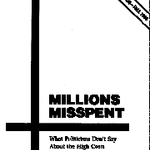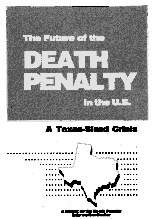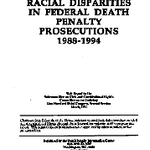In-Depth Reports
Reports: 16 — 20
Oct 01, 1995
With Justice for Few: The Growing Crisis in Death Penalty Representation
– Former U.S. Supreme Court Justice Harry A. Blackmun…
Read MoreFeb 01, 1995
On the Front Line: Law Enforcement Views on the Death Penalty
–Janet Reno, Former Attorney General of the United States…
Read MoreNov 01, 1994
Millions Misspent: What Politicians Don’t Say About the High Costs of the Death Penalty
Across the country, police are being laid off, prisoners are being released early, the courts are clogged, and crime continues to rise. The economic recession has caused cutbacks in the backbone of the criminal justice system. In Florida, the budget crisis resulted in the early release of 3,000 prisoners. In Texas, prisoners are serving only 20% of their time and rearrests are common. Georgia is laying off 900 correctional personnel and New Jersey has had to…
Read MoreMay 01, 1994
The Future of the Death Penalty in the U.S.: A Texas-Sized Crisis
Texas is the nation’s foremost executioner. It has been responsible for a third of the executions in the country and has carried out two and a half times as many death sentences as the next leading state. Death warrants are being signed at an unmanageable pace, yet the Texas death row is bulging with unprecedented numbers of inmates. But this accelerated form of justice comes at a price. The rest of the country should heed the warning of the Texas experience before…
Read MoreMar 01, 1994
Racial Disparities in Federal Death Penalty Prosecutions 1988 – 1994
– Former U.S. Supreme Court Justice Harry A. Blackmun, Feb. 22, 1994…
Read More



